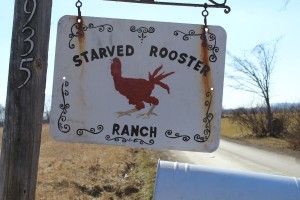ZANESVILLE, Ohio — When he graduated high school in 1943, George Richey figured he’d be doing the same thing as his other classmates — serving the country in World War II.
But when a physical revealed he had a heart murmur, his plans changed. He ended up going to college, at nearby Muskingum College (now Muskingum University), where he met his wife, Helen, and where he learned about another opportunity to serve.
That program was the Seagoing Cowboys — a group of men and boys who came together after the war, to help ship horses, cattle and other livestock to war-torn nations — so that those countries could rebuild its herds.
The program was organized by the United Nations Relief and Rehabilitation Administration, and the Brethren Relief Center of the Church of the Brethren. Over the course of about three years, more than 7,000 men delivered shipments of more than 300,000 head of animals.
Making a memory
Although George admits that his real motivation was the opportunity to go to Europe, he said it was a rewarding experience, and one that he’s cherished all his life.
“I thought this was a chance for a free trip, so in the summer of 1946, I signed up,” he said.

The adventure began when he arrived in Newport News, Virginia, a coastal city where he stayed until it was time to board the first ship, the Beloit Victory.
Leading up to departure, he and the other men stayed at a hotel that was so badly infested with bed bugs, that they had to spray them.
They departed in June 1946, on a nine-day trip en route to Germany — with a load of about 700 head of horses, and a dozen crewmen.
Related: Read the story of another local Seagoing Cowboy.
The horses were loaded onto the ship one at a time, from box stalls. And during the course of feeding and caring for them, George and the other men had to be careful, because many were wild.
“They were wild things, and I mean wild,” he said. “You had to be very, very careful when you were feeding them or around them, that they (didn’t) bite.”
George got bit once, and he said that was enough.
“I was fortunate that I had enough clothes on. They gave me a pretty good pinch, but they didn’t draw blood or anything,” he said.
Arriving in Germany
During the trip, they spent nine days at sea, and had to watch out for minefields that had been planted in the water, near the coast. When they arrived in Germany, George was surprised at the amount of damage.
“That country was totally devastated, there was nothing left standing,” he said. “There were very few people, and very, very little of anything in the way of a building left.”
He ventured inland as far as Hamburg, but decided he had seen enough devastation, and returned back to the ship. When his crew let the horses go, he said they took off in one big herd, down a street, and that was the last they saw of them.
Going to Greece
His second and final trip was in the fall of 1946. A group of men got on an empty ship in Savannah, Georgia, and set out for the Dominican Republic, where they helped load up about 700 donkeys — en route to Greece.
“There was donkeys everywhere — you couldn’t keep them in any (one) place,” he said.
When they landed in Greece — he found out why they were hauling donkeys. It turned out that the donkey and the two-wheel cart was the main form of transportation, he said.
At 4 p.m. every day, the Greeks participated in a siesta, he said, in which everyone stopped and took a break.
“It didn’t make any difference where you were with your cart and your donkey. You stopped and hung a nosebag on the donkey, or gave him something to eat, and you went in the cart and curled up and took a nap — alongside the road or wherever it happened to be.”
George never got to ride in the donkey carts — but he met a lot of people who were thrilled with the shipment.
“They gathered those donkeys up like they were going out of style,” he said.
George said Greece was much more “business as usual,” than Germany, and he got to do more sightseeing.
The trip to Greece took 11 days, and like the trip to Germany, he was paid $150.
George was living on his family’s Muskingum County farm at the time of both trips — and he and Helen still live there today, on about 160 acres.
His remembers when he first came home, that his aunt would not allow him to come into the house, until he stripped his clothes off. She had learned of the bed bugs he encountered — even though he insists they were long gone when he got home.
“I had to strip off out in the yard, (before) they would let me in the house,” he said.
Family life
George married Helen in 1951, and she worked for 22 years at the college where they met.

When he was actively farming, George and his family, including a daughter, Martha, raised Polled Herefords and Hampshire hogs. He also worked off the farm, for the Central Ohio Coal Co., and later, for 16 years as the blacksmith in Roscoe Village — an historical canal town and education center.
Today, they lease out their acres — known as the “Starved Rooster Ranch,” a name they got from an old thresher machine company, known as Aultman-Taylor.
George and Helen, both 90, are avid collectors, and have collected many tractors and steam engines over the years, and for many years they held a steam gathering each year on their farm.
Helen said that while George participated in the cowboys for adventure — he still saw the value — and “he recognized the good they did.”
Their church has made financial gifts to the modern-day version of the cowboys program, Heifer International, and she’s proud of her husband’s service.











